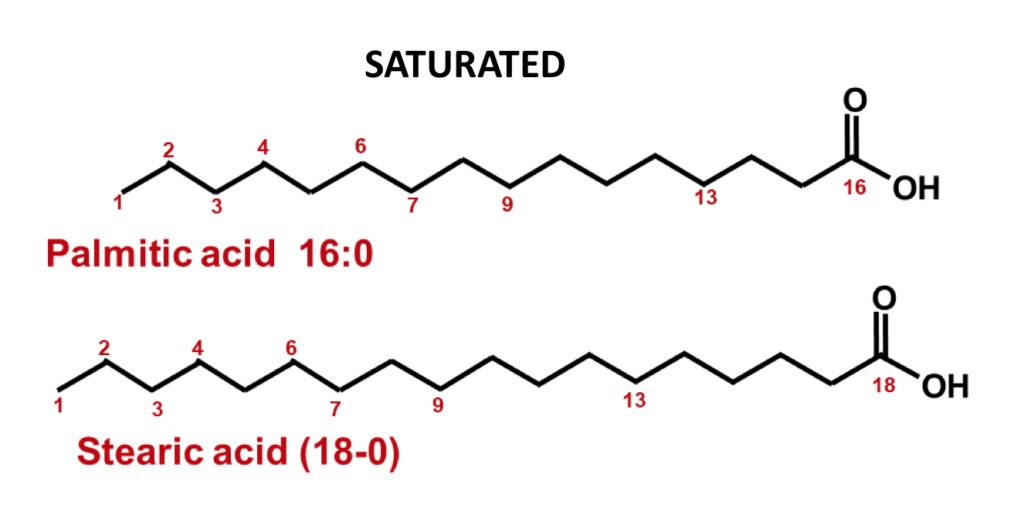In this episode, Bill Harris, Ph.D. in human nutrition and expert on omega-3 fatty acids, sets the table by clearly defining the families of fatty acids (saturated, monounsaturated, polyunsaturated) before diving into the current landscape of polyunsaturated fat (omega-6 and omega-3) with a particular focus on EPA and DHA (the two main elements of fish oil supplements). Bill gives a historical overview, updates us on the latest science related to the health benefits, and provides plenty of insights as to how we should think about increasing our EPA and DHA intake.
Subscribe on: APPLE PODCASTS | RSS | GOOGLE | OVERCAST | STITCHER
We discuss:
- Bill’s long history of studying fatty acids [6:30];
- Defining the fatty acids—SFA, MUFA, PUFA, omega-3, omega-6, and more [9:45];
- What is the significance of fatty acids? Why should we care? [19:45];
- History of fat phobia, saturated fat, and does PUFA reduce cholesterol? [23:45];
- Breaking down the conversion process of omega-6 and omega-3 fatty acids including how we get to EPA and DHA [28:00];
- Takeaway from Bill’s 1980 study looking at how salmon oil affected cholesterol and triglyceride levels [36:15];
- History of our understanding of omega-3 and its effect on LDL cholesterol [45:00];
- Prescribed fish oil drugs vs. OTC supplements—Differences and recommended brands [52:00];
- Health benefits of EPA [57:45];
- Potential benefits of ALA and how it compares to taking EPA and DHA directly [1:12:45];
- Health benefits of DHA [1:17:15];
- Cell membrane omega-3 index—What is it, the role of genetics, how to increase it, and a recommended target [1:19:00];
- Is EPA or DHA neuroprotective? Can it help with depression? [1:23:30];
- Recommended fish to eat for EPA and DHA – Any mercury concerns? [1:25:45];
- Can omega-3 mitigate risks associated with smoking? [1:29:15];
- The problem with the omega-6 to omega-3 ratio [1:30:00];
- The problem with labeling any kind of fatty acid as “bad” [1:36:00];
- Why increasing EPA and DHA intake matters more than reducing omega-6 intake [1:38:00];
- Important takeaway from the VITAL study [1:46:30];
- Importance of testing your omega-3 index [1:53:00];
- Exciting study coming out soon, and why you need to take your fish oil with food [1:57:15]; and
- More.
Get Peter’s expertise in your inbox 100% free.
Sign up to receive An Introductory Guide to Longevity by Peter Attia, weekly longevity-focused articles, and new podcast announcements.
Bill’s long history of studying fatty acids [6:30]
- Got a PhD in nutrition in 1978
- In post-doc, worked for Bill Connor in Portland, Oregon
- First assignment was to figure out what the effect is of salmon oil on cholesterol levels
- Did a metabolic ward study in the late 70s
- Fed people huge amounts of salmon steaks plus salmon oil (~25 grams of EPA/DHA per day)
- Lasted 28 days
- Found that the salmon oil did lower cholesterol relative to the saturated fat diet
- It was about the same lowering as we saw with the vegetable oil diet
- The thing that was unique about salmon oil was that it lowered triglyceride levels
- Published these results in 1980
- Around that same time, Hans Olaf Bang and Jorn Dyerberg published a series of Greenland Eskimo studies which were becoming well-known
“And so we started chasing omega-3 effects on lipids and platelet function and all kinds of other things, and so I’ve just been able to stay with it. I’ve had five grants from the NIH to study omega-3 related questions. It’s been a field that’s continued to be fascinating and ups and downs, but enriching, and as you said, it’s confusing right now. It’s been confusing for most of its history.”
Defining the fatty acids—SFA, MUFA, PUFA, omega-3, omega-6, and more [9:45]
Fat is one of the five macronutrients
- Fats
- Proteins
- Carbohydrates
- Ketones
- Alcohol
Fats come in different chemical forms:
- Saturated fat
- Monounsaturated fat
- Polyunsaturated fat
- PUFA is then divided further
- Omega-3
- Omega-6
- Omega-9
- And more.
- PUFA is then divided further
Saturated fatty acid (SFA)
- SFA are a long single chain of carbon atoms all hooked together (single bonds)
- In chemistry, you can have single bonds, you can have double bonds, you can have triple bonds
- The vast majority of fatty acids in butter, for example, have long single chain
- Solid at room temperature: The simplest way to detect the saturated fat is at normal room temperature, they’re solid

Figure 1. Saturated fatty acid.
Monounsaturated fatty acids (MUFA)
- These have the same long carbon chain as…
{end of show notes preview}
Would you like access to extensive show notes and references for this podcast (and more)?
Check out this post to see an example of what the substantial show notes look like. Become a member today to get access.

Bill Harris, Ph.D.
Dr. Harris is an internationally recognized expert on omega-3 fatty acids and how they can benefit patients with heart disease. He obtained his Ph.D. in Human Nutrition from the University of Minnesota and did post-doctoral fellowships in Clinical Nutrition and Lipid Metabolism with Dr. Bill Connor at the Oregon Health Sciences University.
His interest in omega-3 fatty acids began with his postdoctoral work when he published his first study on the effects of salmon oil on serum lipids in humans (1980). Since that time he has been the recipient of five NIH grants for studies on the effects of omega-3 fatty acids (EPA and DHA) on human health. He has more than 300 publications relating to fatty acids, including omega-3s, in medical literature and was an author on two American Heart Association scientific statements on fatty acids: “Fish Consumption, Fish Oil, Omega-3 Fatty Acids and Cardiovascular Disease” (2002), and “Omega-6 Fatty Acids and Risk for Cardiovascular Disease” (2009) both published in the journal Circulation.
Dr. Harris is a Professor in the Department of Medicine in the Sanford School of Medicine at the University of South Dakota and the President and CEO of OmegaQuant.
[omegaquant.com]



